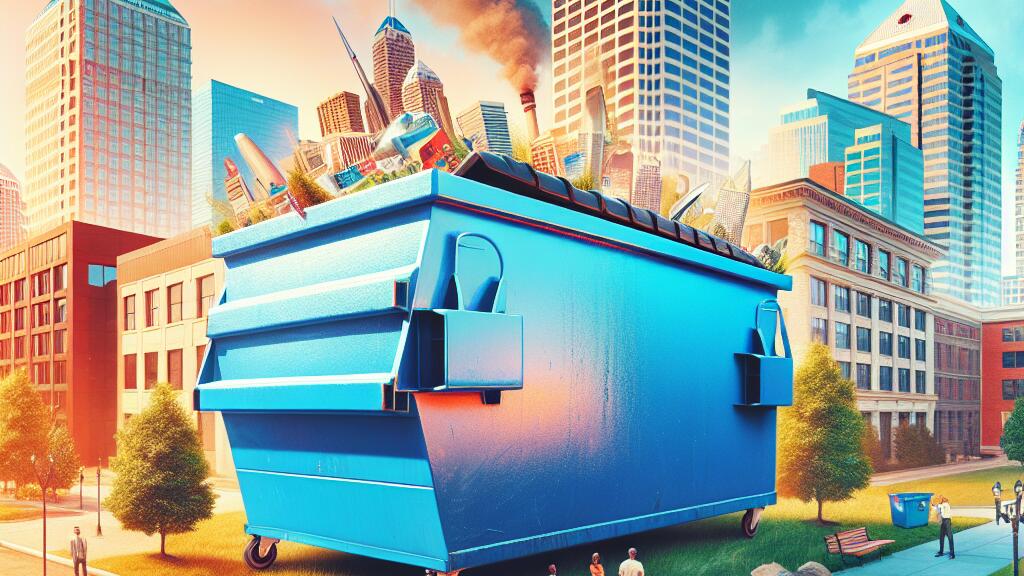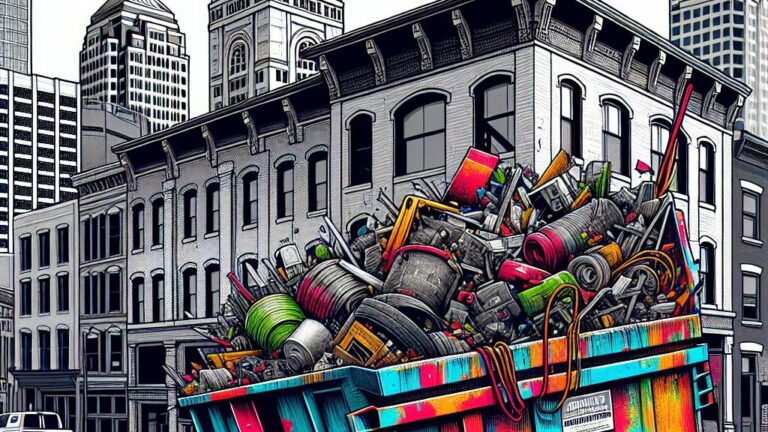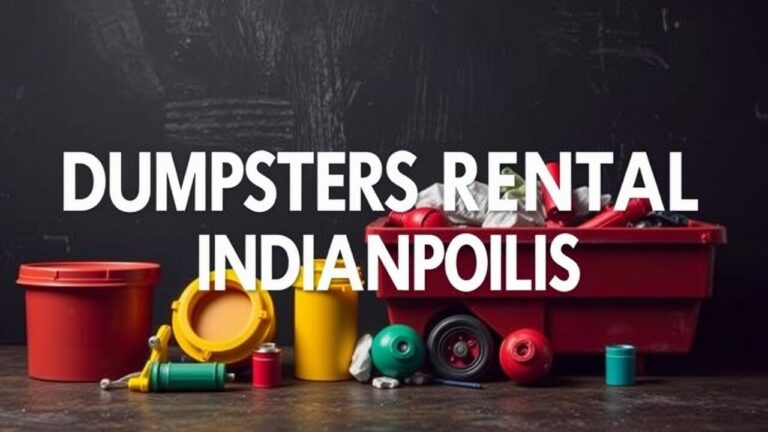What are Commercial Dumpsters and Their Uses
Renting vs. Purchasing Commercial Dumpsters
Businesses often face the decision of whether to rent or purchase commercial dumpsters based on their waste management needs. Renting can provide flexibility, allowing companies to adjust the size and frequency of pickup as project demands change. This option typically involves lower upfront costs and frees the business from maintenance responsibilities, making it an attractive choice for companies with fluctuating waste generation or those engaged in short-term projects.
On the other hand, purchasing a dumpster can be more cost-effective in the long term for businesses with consistent waste output. Owning a dumpster eliminates rental fees, offering greater control over waste disposal timelines. This decision may involve higher initial expenses and the added responsibility of maintenance and compliance with local regulations. Businesses should evaluate their specific requirements, budget constraints, and waste management strategies before making a final decision.
Pros and Cons of Each Option
Renting commercial dumpsters offers flexibility for businesses that may not need a long-term solution. This option requires a lower initial investment, allowing companies to allocate funds elsewhere. Rental agreements can provide access to multiple sizes or types of dumpsters, accommodating varying waste production levels. However, businesses could face ongoing rental fees, which may accumulate over time and lead to higher costs compared to purchasing.
On the other hand, purchasing a commercial dumpster can be a more cost-effective long-term solution for companies with steady waste generation. Ownership eliminates rental fees and provides complete control over usage. Maintenance and repairs can be an added responsibility, potentially escalating costs if the dumpster suffers damage. Additionally, the upfront expense may not be feasible for all businesses, making this option less accessible for those operating on tighter budgets.
Regulations and Compliance for Commercial Dumpsters
Local waste disposal laws play a crucial role in determining how commercial dumpsters should be used and maintained. Regulations often specify the types of materials that can be disposed of in dumpsters and the weight limits that must not be exceeded. Many municipalities have strict guidelines regarding hazardous waste, organic materials, and recycling requirements. Businesses must familiarize themselves with these laws to avoid potential fines or legal issues.
Compliance with regulations also involves ensuring that dumpsters are properly placed and accessible. Certain areas may have specific zoning laws dictating where containers can be situated. Additionally, businesses are responsible for obtaining any necessary permits before renting or placing a dumpster on their property. Adhering to these stipulations not only promotes a cleaner environment but also fosters a smooth operation within the community.
Understanding Local Waste Disposal Laws
Local regulations regarding waste disposal vary significantly, often influenced by state and municipal guidelines. Businesses must familiarize themselves with these laws to avoid penalties and ensure responsible waste management. Rules may dictate the types of waste allowed in commercial dumpsters, the frequency of pickups, and the proper disposal methods for hazardous materials. Regulations may also require businesses to maintain certain documentation related to their waste disposal practices.
Understanding local waste disposal laws is crucial for compliance and sustainability. Engaging with local environmental agencies can provide guidance on necessary permits and operational standards. Regularly reviewing these regulations will help businesses adapt to any changes in the law. This proactive approach not only supports legal compliance but also contributes to a more environmentally friendly waste disposal process.
Maintenance of Commercial Dumpsters
Regular maintenance is essential for ensuring the longevity of commercial dumpsters. This involves routine cleaning to prevent the buildup of debris and odors. Utilizing a power washer can effectively remove grime and stains. Inspecting the dumpster for any signs of damage is also crucial. Checking for rust, dents, or issues with the locking mechanism helps maintain safety and functionality.
Another important aspect is ensuring proper placement to avoid overflow issues. Keeping the area around the dumpster clear allows for easy access and encourages responsible disposal practices. Scheduling periodic inspections can help identify potential problems before they escalate. By following these maintenance tips, businesses can maximize the efficiency and lifespan of their commercial dumpsters.
Tips for Keeping Your Dumpster in Good Condition
Regular cleaning is essential to maintain the condition of your dumpster. Accumulated debris and liquids can lead to unpleasant odors and attract pests. Scheduling routine power washing can help mitigate these issues. Ensuring that the area surrounding the dumpster is clear of litter also aids in preventing contaminants from entering the receptacle, enhancing overall hygiene.
Monitoring the wear and tear on your commercial dumpster can prevent costly repairs or replacements in the future. Inspect for any signs of rust, damage, or malfunctioning components. Addressing these issues promptly can prolong the lifespan of the unit. Additionally, training employees on proper usage practices can minimize misuse and ensure the dumpster is respected.
Environmental Impact of Commercial Dumpsters
Commercial dumpsters play a significant role in waste management for businesses. Their size and capacity allow for the efficient disposal of large quantities of waste, which can help prevent littering and promote cleanliness in commercial areas. However, the environmental impact goes beyond just waste removal. Landfills filled with improperly managed waste can lead to soil and water pollution. This underscores the importance of responsible disposal methods and adhering to local recycling guidelines.
The increasing emphasis on sustainability has led many businesses to explore ways to minimize their environmental footprint through responsible dumpster use. Implementing recycling programs and separating recyclable materials can significantly reduce the amount of waste that ends up in landfills. Additionally, choosing to rent or purchase eco-friendly dumpster options can further support sustainable practices. Engaging with waste management providers that prioritize green initiatives also enhances a business’s commitment to environmental stewardship.
Recycling and Sustainable Practices
The responsible management of commercial dumpsters plays a vital role in promoting recycling and sustainable practices. Businesses can implement a clear waste separation strategy to ensure recyclable materials are properly diverted from landfills. By doing so, companies contribute to reducing their ecological footprint while also complying with environmental regulations. Partnering with waste management services that prioritize recycling can further enhance these efforts.
Encouraging employees to participate in waste reduction initiatives fosters a culture of sustainability within the workplace. Regular training and awareness programs can help reinforce the importance of recycling and responsible disposal methods. In addition, utilizing signage on or near dumpsters can guide proper sorting of materials. Ultimately, integrating recycling practices into waste management not only benefits the environment but can also create cost savings for businesses.
FAQS
What is a commercial dumpster?
A commercial dumpster is a large waste container typically used by businesses for the disposal of bulk waste and recyclables. They come in various sizes and are designed to handle the higher waste volumes generated by commercial operations.
Should I rent or purchase a commercial dumpster for my business?
The decision to rent or purchase a commercial dumpster depends on your business’s waste disposal needs and budget. Renting offers flexibility and less upfront cost, while purchasing may be more economical for businesses with consistent waste production over time.
What are the regulations regarding commercial dumpsters?
Regulations for commercial dumpsters vary by location, but generally include guidelines on placement, size, and waste types. It’s important to check local waste disposal laws and compliance requirements to ensure your dumpster usage aligns with local regulations.
How can I maintain my commercial dumpster?
To maintain your commercial dumpster, regularly clean it to prevent odors and pests, promptly report any damage to your rental service, and ensure that it is only used for approved waste types. Proper maintenance helps extend the life of the dumpster.
What is the environmental impact of using commercial dumpsters?
The environmental impact of commercial dumpsters can be significant, as they contribute to landfill waste. However, implementing recycling and sustainable practices can help reduce this impact by diverting recyclable materials away from landfills and promoting responsible waste management.







